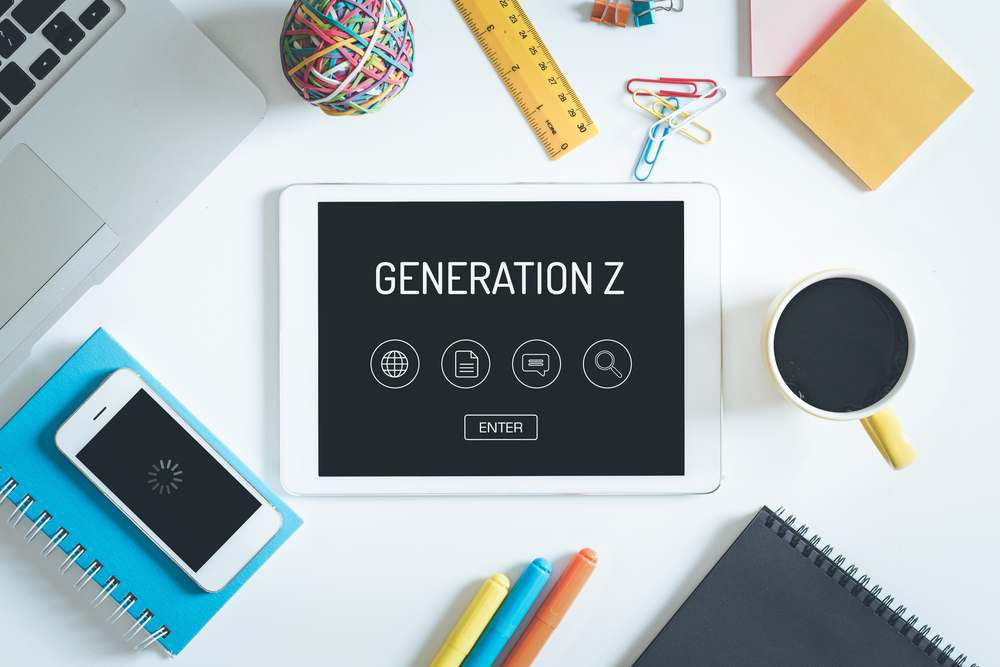There are unequivocal shifts in the workplace when a new generation joins the workforce. But instead of focusing on differences, we should welcome changes with open arms, as well as acknowledge that some of the changes may not be as big or bad as feared.
New employees from younger generations may have a fresh take on inefficient procedures and revamp energy into aspects of your business that have become stagnant. They can also assist with technology issues that older generations aren’t as familiar with. While these younger people bring special skills, they also bring different expectations and values into the workplace. This post seeks to expel the myths, discuss what research has shown us, and explain how your business can reap the benefits from younger generations.
Getting to know the younger generations
The data presented in this post is mostly based on millennials instead of Gen Z’ers, because there has been much more solid research on millennials and it’s safe to assume that Gen Z’ers will be similar to millennials, with some values being emphasized. But first, it’s important to recognize the distinction between millennials (who have been in the workforce for around a decade) and Gen Z’ers, who are mostly still in school.
Millennial: A person born between the 1980s and early ‘90s, reaching young adulthood by the early 2000s. The Great Recession had a large impact on how they act and perceive the world.
Generation Z’er: A person born in 1995 or after. They will constitute 1/3 of the American population by 2020. The constant availability of information through mobile devices has a large impact on how they act and perceive the world (40 percent of Gen Z’ers have declared themselves digital device addicts).
While only 25 percent of millennials graduated college, approximately 50 percent of Gen Z’ers are expected to have a college education. Millennials are more focused, but Gen Z’ers are better multi-taskers. The youngest generation is more entrepreneurial, place a high value on uniqueness, and are much less frugal than millennials.
Mythbusting
Although articles criticizing millennials are plentiful, you may have more in common with them than you think. Millennials share some of the same work environment values as non-millennials, for example:
- 71% of millennials believe work interferes with their personal life, compared to 63% of non-millennials
- 37% of millennials would like to work overseas, compared to 28% of non-millennials
- 41% of Millennials prefer to be rewarded or recognized for their work at least monthly, compared to 30% of non-millennials
However, there are some differences between millennials and non-millennials in terms of business atmosphere. Millennials have a stronger emphasis on being supported and appreciated in their work environment. They have strong social needs, which include team cohesion, supervisor support, supervisor appreciation and flexibility. They’re also looking for a work environment that lets them flourish professionally and also personally.
Work to their strengths
No matter what you or your employees think of younger people, you have to accept the fact that they are the future. So, your goal is to create a cohesive, efficient, and comfortable working atmosphere; one where younger people feel comfortable and employees can work to each other’s strengths and skills.
In order for employees to feel comfortable and happy at their jobs, their workplace values need to be met. Studies show that millennials value workplace balance, utilization of modern technologies and growth. These values have to be incorporated into your business if you want young professionals to work for you.
Flexible workplace: Millennials prefer a flexible work schedule to help them be more productive without compromising the quality of work. With the available technologies out there, such as Skype and other collaborative software, what they’re asking for is feasible. Millennials value happiness at the workplace over business loyalty and will leave a job if it isn’t meeting their needs. Stay open minded, provide flexibility where possible, have faith, and watch these young people flourish.
Supportive atmosphere: Another concept millennials highly value is having a supportive work environment in which they feel appreciated. Create a fun, supportive and open workspace for your team members. Help inexperienced or struggling co-workers with additional training and encouragement. Develop the workplace behaviors you expect by use of positive reinforcement.
Utilizing technologies: The younger generations are literate in social media, the Internet and electronics. They are comfortable using and learning new technologies and they expect businesses to do the same, such as using modern software and including social media as part of their marketing mix. Their expectations can be beneficial, because they may come up with ideas your team hasn’t thought of or they may suggest software or other technology solutions that make tasks more efficient.
Encourage growth: Reinvest in your employees by taking advantage of educational conventions, seminars, online learning programs, and webinars. Investing in your employees will pay dividends, as they will use their refined skills to help your business and will also feel more compelled to stay with your company. Perform yearly or biannual evaluations to encourage your employees to work on their weaknesses and to praise them for their accomplishments. These young people aren’t lazy and they aren’t looking for a dead-end job. Seek ways for promising employees to move up the corporate ladder.
In Conclusion
While some stereotypes about younger generations are true (at least they admit they are constantly glued to their phones), some stereotypes are false or misleading. The truth is there are more similarities between generations than originally believed and the differences should be made to work to your advantage. Younger generations have a lot of useful skills that can benefit your business monetarily or make it a more comfortable work environment. It’s also important to not generalize and assume that every member of a certain generation is the same.
Ultimately, if you include company culture compatibility in the hiring process, the workplace environment and workplace habits will be strengthened because the employees will have similar values, expectations, and will work cohesively.
Paragon Accountants doesn’t just give business and workplace advice, we’re also an accounting firm (obviously)! We would love to manage your accounting and taxes, so you can focus on growing your business. Swing on by or call us today!





